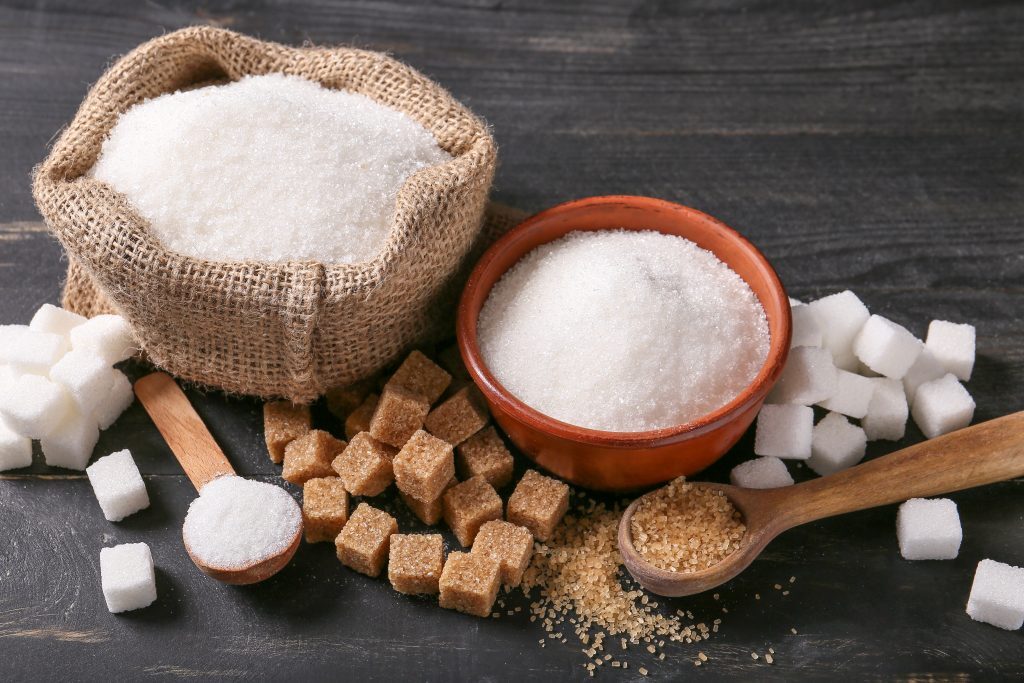Shake That Weight ™ • 19th July 2021 • 3 years ago
Natural vs Added Sugar

When trying to lose weight and deciding what to eat, the type and amount of sugar foods contain is one of the key considerations. Sugar is a form of carbohydrate that gives you energy, but not all sugars are the same, and some are better for you than others.
One distinction to make between sugars is the difference between natural sugars and added sugars. Here’s what they are, the differences between them and the foods they can be found in…
What are added sugars?
As should be pretty obvious, added sugars are sugars that are added to foods. This is done to make them sweeter. However, it’s not just a case of a load of sugar poured in when making the food; it can also refer to other substances that contain sugar, such as honey or syrup, being added.
Loads of foods can contain added sugar, including:
- Bread
- Chocolate
- Fruit juices
- Ice cream
- Cereal
- Fizzy drinks
- Cakes and pastries
What is natural sugar?
Again, the name really gives it away! Natural sugars are sugars that are found natural in foods – they haven’t been added during processing.
Natural sugars are found in various foods but most notably in fruit (known as fructose), vegetables, and milk (known as lactose).
Are added or natural sugars bad for you?
Added sugar is the one you really need to be wary of if you’re trying to lose weight or live a healthier lifestyle. Added sugar offers little to no nutritional value. Even though it can make foods and drinks taste nicer, all it really does is add extra calories to your diet.
It is also more difficult to burn off added sugar and can lead to increased fat build up. This can then result in a higher risk of other medical conditions such as diabetes and heart disease.
It’s also a bit of a vicious circle because sugar is addictive, so the more you have, the more you tend to want. It can be difficult to avoid added sugar, but as with everything else, it’s all about moderation.
But what about natural sugars? Are they also bad for you? Well, no not really.
Although plenty of foods contain natural sugars, those that do, such as fruit and veg, are also packed full of vitamins, minerals and other good stuff. Most of the time this outweighs the negative effects of sugar.
Your body also tends to absorb natural sugar more slowly and burn it off quicker, which is good for your blood sugar levels.
However, if you’re following a keto diet then you do have to be a little careful even with natural sugars. Too much sugar will prevent ketosis, so even fruit can prevent you from losing weight in this case. You will also have to be careful about the amount of sugar in the veggies you eat, too. For example, vegetables such as peas, sweetcorn, carrots and onions are quite high in sugar.
How much sugar should you have?
As we’ve just mentioned, if you’re following a ketogenic diet, you should keep sugar intake (natural and added) to a minimum.
The NHS suggest that added sugars (referred to as free sugars on their website) should make up no more than 5% of your daily calories. In a bit more detail…
- Adults should have no more than 30g of free sugars a day, (roughly equivalent to 7 sugar cubes).
- Children aged 7 to 10 should have no more than 24g of free sugars a day (6 sugar cubes).
- Children aged 4 to 6 should have no more than 19g of free sugars a day (5 sugar cubes).
- There’s no guideline limit for children under the age of 4, but it’s recommended they avoid sugar-sweetened drinks and food with sugar added to it.
However, they do state that we don’t need to cut down on natural sugars, so you can pretty much consume as much as you like of those!
Sources:
https://www.healthline.com/health/food-nutrition/sugar-facts-scientific
https://www.webmd.com/diet/ss/slideshow-effects-cut-added-sugar
https://www.swimming.org/masters/how-bad-is-sugar-for-health/








